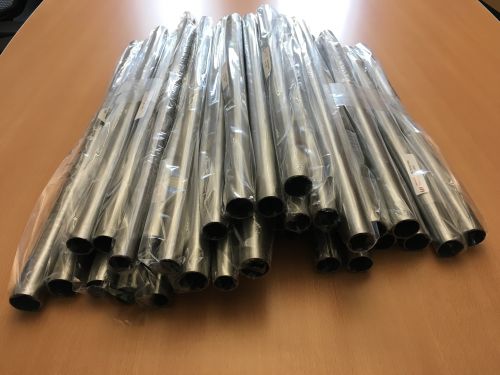WASHINGTON (BRAIN) — The Trump administration's plans to sign sweeping tariff revisions next week could raise the price of imported steel by 25 percent and increase the cost of imported aluminum by 10 percent.
U.S. manufacturers that use steel and aluminum — both domestic and imported — are concerned the tariff could make their products less competitive.
Paul Price, founder of Paul Component Engineering, said that since he only uses domestically produced aluminum, the boost in aluminum import tariff will not impact him directly. But he expects the cost of domestic aluminum to go up if the tariff is imposed.
"It's just capitalism: If aluminum import prices go up then domestic aluminum will go up as well. So in the end while I don't use imported aluminum my costs will probably go up," Price said.
"I understand they are trying to protect steel and aluminum producers, but it will be domestic manufacturers like me that will pay the price and as our costs rise and our business suffers," he said.
If Price's raw material costs increase, his company's products will become more expensive while foreign-made hubs remain priced the same, putting him at a disadvantage in the marketplace.
It's still unclear what the administration considers "raw" steel and aluminum. It could mean ingot, wire, sheet and tubing products, or steel used in construction.
And the administration has not identified which steel exporting nations will see the increased tariff. The top steel exporters to the U.S. are Canada, Brazil, South Korea, Mexico and Russia. The top aluminum exporters are Canada, Russia, United Arab Emirates and China.
DT Swiss makes spokes in Grand Junction, Colorado, from imported stainless steel wire. The proposed 25 percent tariff on imported steel could have a big impact on what the company makes in Colorado. At the very least, the disruption in business caused by the new tariffs would impact pricing, the company said.
"As for our wire source, we are really hyper about making sure our wire is hitting the ingredients within the alloy with precision. Therefore, we have a few sources that we work with who can actually produce to our very strict requirements in this regard. There are currently no domestic producers of the steel alloy we use for our spokes," said Chip Barbieri, DT Swiss's CEO and general manager.
"Much of our raw materials involved in spoke production and wheel production already have high tariffs, so there are varying levels of how the new tariff would impact us. We remain committed to USA production as the costs of product — albeit higher to us than other facilities — is just one element of our supply strategy," he said.
Many in the industry do not think butted bicycle tubing will be affected by the tariff as it is not raw material, but it remains to be seen what type of steel or aluminum imports will receive the tariff.
"Everything is so speculative at this point," said Chris Vorwald, sales manager for frame tubing brand Vari-Wall.
"We source all the steel we use in our bike tubing from domestic suppliers, so on that front we will not be impacted. And we have no plans to increase prices on our bicycle tubing due to the tariff or any other economic factors."
The National Retail Federation on Monday called the tariffs a "tax on American families."
“When costs of raw materials like steel and aluminum are artificially driven up, all Americans ultimately foot the bill in the form of higher prices for everything from canned goods to electronics and automobiles. The reality is that there is nothing this country will gain from such a one-sided policy. These tariffs threaten to destroy more U.S. jobs than they will create while sending an alarming signal to our trading partners and diminishing markets for American-made products overseas,” the NRF said.


